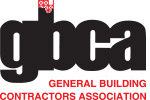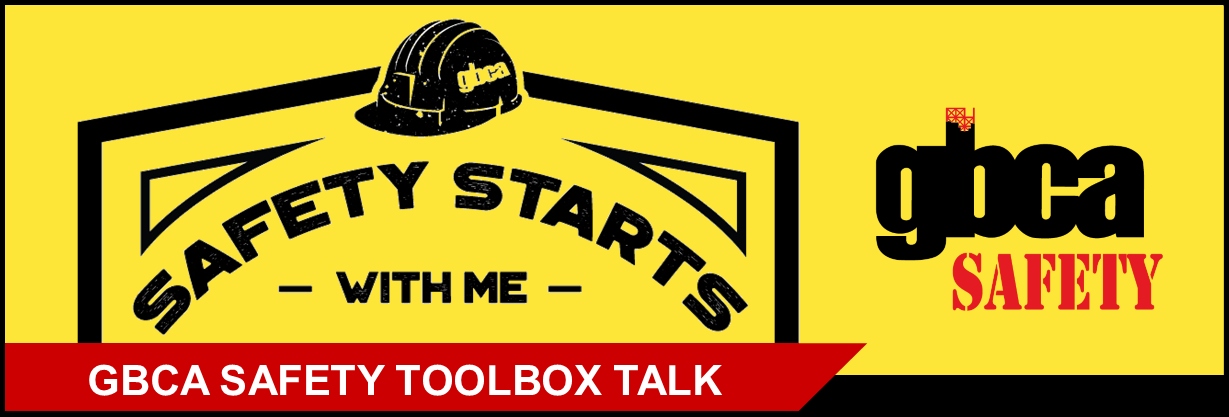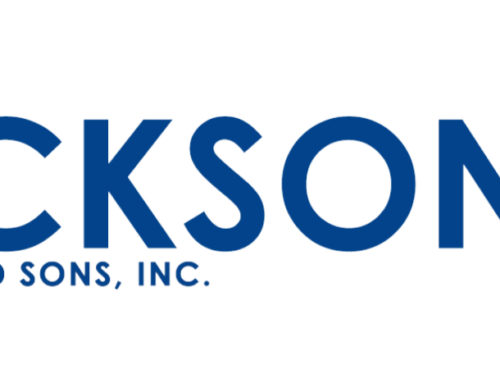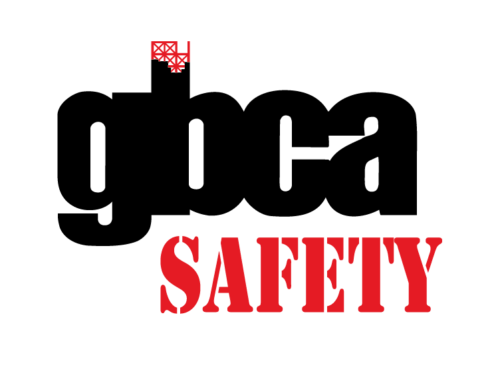This GBCA Safety Toolbox Talk provides tips for working in extreme heat. Click below to download the Toolbox Talk as a one-page handout.
Working in Extreme Heat
Working in excessive heat can lead to injuries such as heat stroke, heat exhaustion, heat cramps, and heat rash. In 2017, 87 people died in the US from exposure to excessive heat (National Safety Council Injury Facts).
Here are 10 tips to avoid heat related injuries:
- Stay hydrated. Drink plenty of fluids; drink about 16 ounces before starting and at least one cup (8 ounces) of water every 20 minutes while working in the heat, not just if you’re
thirsty. - Avoid dehydrating liquids. Alcohol, coffee, tea and caffeinated soft drinks can hurt more than help.
- Wear protective clothing. Lightweight, light-colored and loose-fitting clothing helps protect against heat. Change clothing if it gets completely saturated in sweat, but be mindful of this clothing near rotating equipment.
- Pace yourself, and work at an even pace. Know your own limits and ability to work safely in heat.
- Schedule frequent breaks. Take time for rest periods and water breaks in a shaded or air conditioned area.
- Use a damp rag to stay cool. Wipe your face or put it around your neck.
- Avoid getting sunburn. Use sunscreen and wear a hat if working outside.
- Be alert to signs of heat-related illness. Know what to look for and check on other workers that might be at high risk. Check the OSHA NIOSH Heat Safety Tool.
- Avoid direct sun. Find shade or block out the sun if possible.
- Eat smaller meals. Eat fruits high in fiber and natural juice. Avoid high protein foods.
Remember that heat-related deaths can happen to anyone. Workers are at greater risk of heat stress, however, if they meet the following criteria:
- Aged 65 years or older
- Are overweight
- Have heart disease or high blood pressure
- Take medications that are affected by extreme heat. Check with your medical provider or pharmacist to see if your medications produce this side-effect.
Remember to record the attendees of your toolbox talk!
Access GBCA’s full library of toolbox talks:





